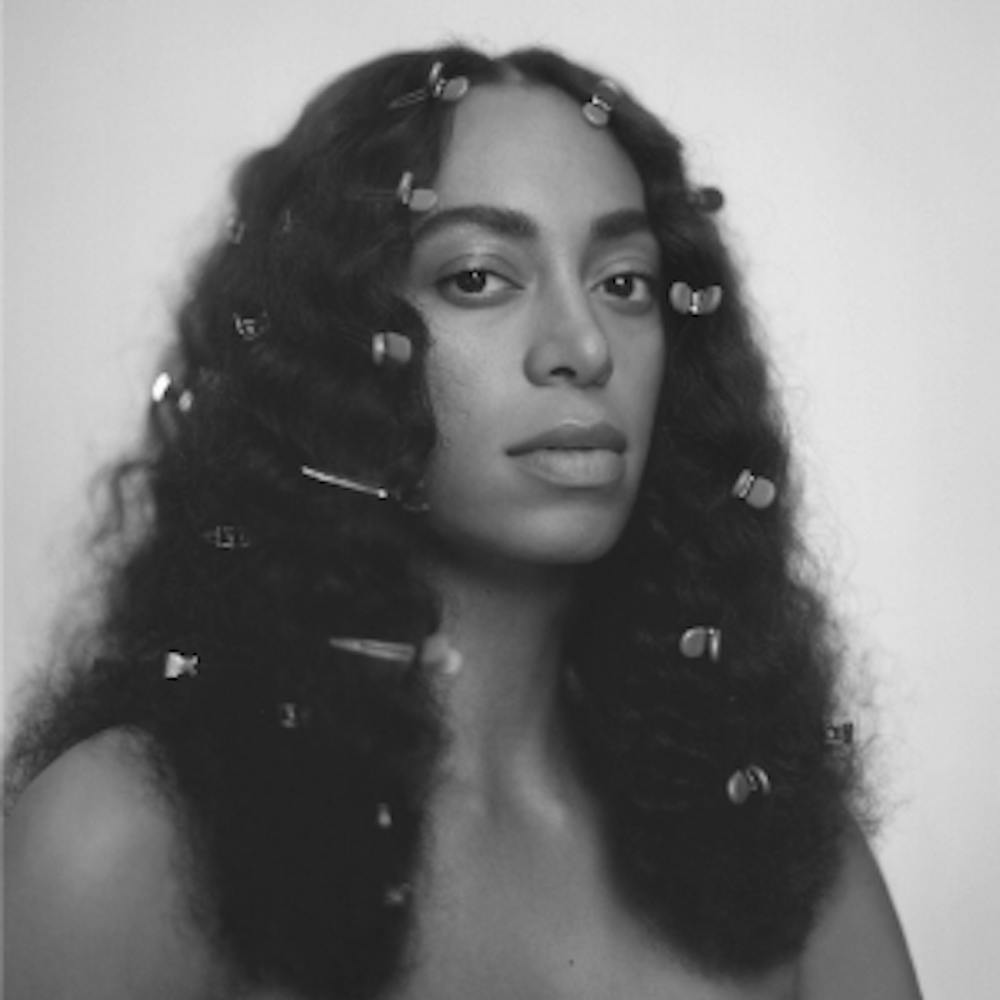If you need a CD player, you can check one out at the Circulation Desk in the Davis Family Library.
Solange Knowles’ “A Seat At the Table” is one of the Blackest albums I’ve ever heard in my life. What do I mean by that? Solange consciously infuses her album with ideas of legacy, empowerment and the often invisible burden and impact of discrimination felt by Black peoples. She does all of this in one album, taking a portrait of Black people’s lived experiences and translating them into music.
Solange is popularly known as Beyoncé’s passionate younger sister. She made quite a shocking scene in 2017 when she attacked her rapper mogul brother-in-law Jay-Z in an elevator. She publicly addresses conversations that center trauma against the black body. And, reportedly, shirking traditional gender norms, she was the one to initiate a courtship with her husband, video music producer Alan Ferguson. All this is to say that she is fearless. Also, as the sister who often lives in the shadow of her powerhouse sibling, she likely has more leeway to voice everyday injustices in an explicit and unapologetic manner. She uses her musical platform as an opportunity to host a collective therapy session and, as “we” say, “I’m here for it.”
“A Seat At the Table” had to grow on me. Listeners learn that they can’t go to Solange’s oeuvre looking for Beyoncé’s repertoire. Their styles are completely different. While Beyoncé has some “shake-your-booty” hits and some ballads, Solange is giving us slow, melodic, minimalist and most importantly contemplative songs. A theme that you sense on this album is that the message of the music supersedes the sound. Music is the medium, but sharing the message is the point. Solange’s voice is subtle — never strained, no wild riffs, no feats performed to demonstrate range. She’s gentle and potent all at once. A unique feature on the album is the use of interwoven interludes featuring personal narratives from No Limit Records rap mogul Master P and her parents, Tina and Matthew Knowles. Master P, for example, talks about entrepreneurship, the efforts he made to own his own label and how pursuing his dream allowed him to liberate other members of his family from unfavorable socioeconomic conditions. Where have you seen this before? It’s as though Solange wrote a letter to America and said, “Hey, listen: my seat of privilege does not divorce me from the sufferings of my people and I will use my platform to advance our causes.” It is bold. It is beautiful. It is appreciated.
For a similar sound, search YouTube for Lianne La Havas for gentle, feminine vocals and acoustic accompaniment or Ella Mai for a familiar R&B sound, a more sophisticated production value and lyrics with an edge. For throwbacks of similar sounds, see Tamia or Myá.
The Librarian is in

Comments



